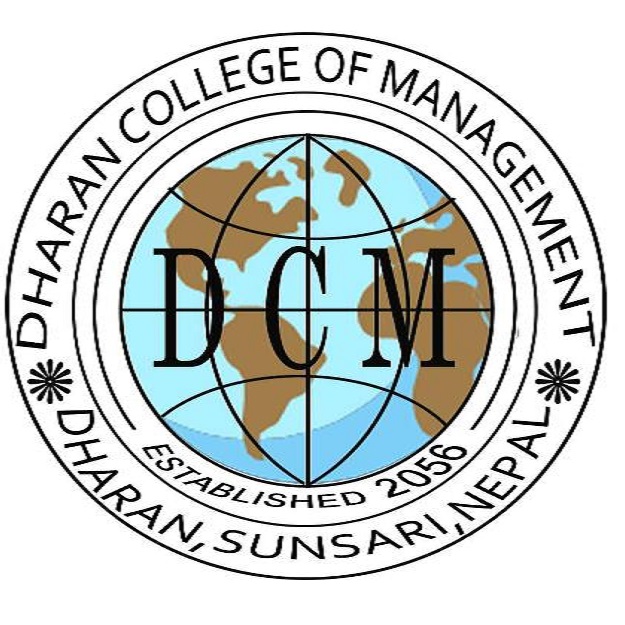Overview
MBA at Green Peace Lincoln College, Itahari
If you’re a Management, Commerce, or cross-discipline graduate thinking about leadership roles, this guide explains the MBA at Green Peace Lincoln College (GPLC), Itahari, Sunsari under Lincoln University College (LUC), Malaysia.
Overview
Students usually want straight facts—course structure, recognition path, and where it leads. GPLC conducts a two-year MBA across four semesters on its Dipendra Chowk campus. Teaching follows the LUC academic framework, and assessment includes internal work plus semester examinations.
Timings on recent notices show morning delivery (around 6:15 AM to 9:15 AM). Intake schedules, fee tables, and any updates change by academic year, so applicants should check the latest college circular before applying.
Highlights
-
Affiliation: Lincoln University College (Malaysia); delivery on GPLC campus, Itahari.
-
Duration & Semesters: 2 years; 4 semesters.
-
Total Credits: Approx. 70 credits across core, minor, and electives.
-
Evaluation: Internal assessment (assignments, presentations, quizzes, project) plus university exams.
-
Capstone: Graduate Research Project and industry internship embedded in the final year.
You want to know exactly what you’ll study. The next section breaks it down clearly.
Curriculum Details
Year 1 — Semester 1
-
Business Accounting & Finance (ACC 501) — 4 credits: Financial statements, cash flow, time value of money, working capital.
-
Business Economics (ECO 501) — 4 credits: Market behavior, demand and supply, firm decisions in different structures.
-
Human Resource Management (HRM 501) — 4 credits: Workforce planning, performance systems, labor relations.
-
Managerial Communications (MGT 513) — 4 credits: Written reports, briefings, stakeholder communication.
-
Business Environment Analysis (MGT 516) — 2 credits (Minor): Regulatory context, competition maps, sector scanning.
Year 1 — Semester 2
-
Business Research Methodology (MGT 514) — 4 credits: Problem statements, research designs, sampling, data analysis, reporting.
-
Operation Management (MGT 508) — 4 credits: Process flow, capacity, quality systems, inventory.
-
Marketing Management (MKT 501) — 4 credits: Segmentation, positioning, channel basics, campaign planning.
-
Organisational Behaviour (ORG 501) — 4 credits: Individual and group behavior, leadership, culture.
-
Consumer Behaviour (CBH 501) — 2 credits (Minor): Decision processes, perception, learning, attitudes.
Year 2 — Semester 3 (Core + Minor + Two Electives)
-
Strategic Management (MGT 510) — 4 credits: Vision, external/internal analysis, strategy choices, execution.
-
Retail Management (MGT 523) — 2 credits (Minor): Store formats, merchandising, retail metrics.
-
Two Electives — 4 credits each (sample set):
-
Financial Management (MGT 518): Capital budgeting, structure, risk-return.
-
Entrepreneurship Management (MGT 504): Opportunity recognition, venture plans.
-
Sales & Promotions Management (MGT 519): Sales planning, pipeline tracking, promotions mix.
-
International Business (MGT 505): Trade patterns, entry modes, cross-border risk.
-
-
Internship Project (MGT 511) — 4 credits: Industry-based assignment with report and presentation.
Year 2 — Semester 4 (Core + One Elective)
-
Management of Data (MGT 512) — 4 credits: Data sources, governance, dashboards, decision support basics.
-
Business Ethics (MGT 503) — 4 credits: Codes of conduct, governance, accountability.
-
Graduate Research Project (MGT 524) — 4 credits: Independent study with supervised guidance and viva.
-
One Elective — 4 credits (sample set):
-
Banking & Insurance (MGT 520): Products, risk, regulation.
-
Customer Relationship Management (MGT 521): Retention metrics, service recovery.
-
Conflict Management & Negotiation Skills (MGT 522): Bargaining, mediation, scripts for workplace settings.
-
Not sure how this plays out each week? Classes combine lectures, case tasks, and small assessments that build toward end-semester exams.
Objectives
This MBA aims to help graduates:
-
Read and interpret financial and market data for sound decisions.
-
Plan operations and projects with realistic timelines and quality checks.
-
Lead teams with clear communication and measured accountability.
-
Map competitive forces and craft workable strategies.
-
Produce research and internship outputs that reflect practical problems in Nepal’s context.
Scope
Students from business and non-business backgrounds use the MBA to shift roles or move up within their function.
The curriculum covers finance, marketing, HR, operations, strategy, ethics, data, and consumer behavior so you gain cross-functional awareness.
Applicants seeking international study or recognition should keep syllabi, transcripts, and grading notes ready for evaluators.
Learning Outcomes
Graduates who complete the requirements should be able to:
-
Prepare brief investment memos using capital budgeting and risk concepts.
-
Build market plans tied to segmentation and channel choices.
-
Draft operations schedules and basic quality dashboards.
-
Write policy-aware HR guidelines for performance and conduct.
-
Present research findings with a clear method, data tables, and limits.
-
Defend internship learning with evidence from tasks and reflections.
Skill Development Modules
-
Quant & Finance: Accounting & Finance, Financial Management (elective), Data for decisions.
-
Markets & Customers: Marketing Management, Consumer Behaviour, CRM (elective), Sales & Promotions (elective).
-
People & Culture: HRM, Organisational Behaviour, Conflict & Negotiation (elective).
-
Systems & Processes: Operation Management, Strategy, Retail, International Business (elective).
-
Research & Practice: Research Methodology, Internship Project, Graduate Research Project.
-
Ethics & Governance: Business Ethics, policy literacy across functions.
Here’s how teachers usually run the program so you know what a semester feels like.
Teaching Methodology
GPLC reports a mixed approach that keeps learning active:
-
Coursework, weekly assignments, and short quizzes.
-
Case discussions, role plays, and student presentations.
-
Guest talks from practitioners and information sessions.
-
Workshops, seminars, and field-based tasks when scheduled.
-
Article reviews to build reading discipline.
-
Internship supervision and research guidance in year two.
Internal evaluation contributes to the final grade. University examinations conclude each semester.
Admission Requirements
-
Eligibility: Recognized Bachelor’s degree in any discipline meeting current GPA/percentage criteria set by LUC/GPLC.
-
Documents: Application form, photographs, ID, academic transcripts, character certificate, and supporting records.
-
Equivalence: Graduates from non-Nepali universities should secure the relevant equivalence document in Nepal.
-
Process: Application submission → document review → interview/counseling if required → provisional/confirmed admission.
-
Schedule & Fees: Follow the latest GPLC intake notice for deadlines, fee structure, and any scholarship windows.
Worried about the interview? Short preparation on your academic background, work exposure (if any), and goals usually helps.
Career Opportunities
MBA graduates commonly step into:
-
Banking and Financial Services: Credit analysis, branch operations, relationship roles.
-
Consumer & B2B Markets: Brand support, sales planning, channel operations.
-
Operations & Supply: Planning assistant, quality support, vendor coordination.
-
People & Culture: HR generalist, training coordination, performance support.
-
Consulting & Projects: Research assistant, analyst, project coordination.
-
Entrepreneurship: Small ventures or family business roles with structured planning.
Roles depend on prior background, skills, internship quality, and market timing. Strong writing, Excel fluency, and presentation skills often make the difference at entry.
Scholarships and Financial Aid
GPLC runs institutional scholarships under college policy. Categories, required documents, and timelines vary by intake. Students should request the current scholarship notice, confirm eligibility and amounts, and submit applications before deadlines. Keep copies of approvals for personal and audit records.
Why Choose This Course?
Students who want a clear route from fundamentals to applied projects will find the semester plan steady and predictable.
The internship and graduate project place real tasks at the center of year two. Morning schedules suit working students or commuters from nearby municipalities.
Applicants targeting cross-functional roles—finance with marketing exposure, operations with HR insight—get that mix here.
Still weighing your options? Ask yourself: do you want structured exposure to finance, markets, people, and processes over two focused years?
Conclusion
The MBA at Green Peace Lincoln College, Itahari offers a two-year academic path under Lincoln University College that moves from foundations to strategy, ethics, data use, and applied research.
Your next steps are practical: collect the latest intake notice, confirm eligibility and required documents, review the current fee and scholarship circular, and scan sample internship or research topics.



















